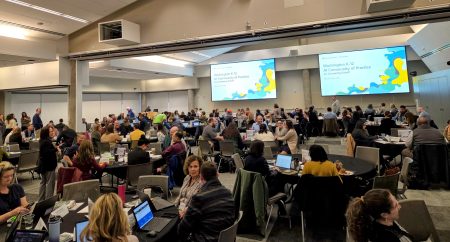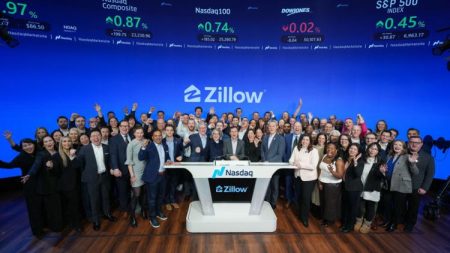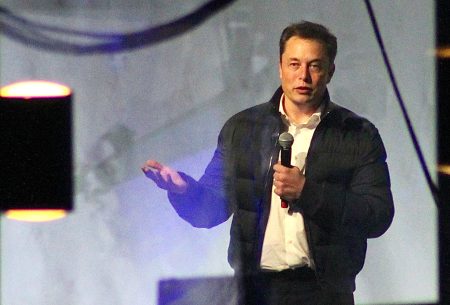Starbucks’ Tech Transition: CTO Departure Amidst Digital Transformation
In a significant leadership change, Starbucks Chief Technology Officer Deb Hall Lefevre has resigned from her position, according to a recent Reuters report. Her departure comes at a critical juncture for the Seattle-based coffee giant, which is currently implementing extensive technological changes while simultaneously navigating substantial workforce reductions. Hall Lefevre, who joined Starbucks in 2022 after an impressive 16-year career at McDonald’s where she served as corporate vice president and CIO, leaves without a permanent successor in place. According to an internal memo circulated to staff last week, Ningyu Chen, previously the senior vice president of global experience technology, has stepped in as interim chief technology officer. Chen, who operates from Atlanta according to his LinkedIn profile, faces the challenging task of maintaining technological momentum during this transition period. This leadership vacuum in the technology department emerges as particularly concerning given Starbucks’ current strategic emphasis on digital innovation as a path to revitalization.
The timing of Hall Lefevre’s departure aligns with broader organizational restructuring at Starbucks. Just last week, the company announced plans to lay off approximately 900 non-retail employees and close underperforming locations, primarily in the United States and Canada. This follows a previous reduction of 1,100 corporate positions in February, highlighting a pattern of significant workforce adjustments under new leadership. These cuts reflect the company’s struggle with declining sales and its attempt to streamline operations while implementing new technological solutions. The Reuters report also indicates that Starbucks’ IT division is increasingly relying on an external contractor based in India, suggesting a potential shift in how the company structures its technology operations going forward. This outsourcing approach may represent an effort to reduce costs while maintaining technological development capabilities during a period of financial constraint.
Under the direction of CEO Brian Niccol, who joined Starbucks last year after a successful tenure at Chipotle, the coffee chain is implementing numerous technology initiatives aimed at reversing declining sales trends. These innovations include a sophisticated new algorithm for order sequencing designed to improve efficiency and customer satisfaction by optimizing the flow of drink preparation. Additionally, the company is conducting a comprehensive overhaul of its mobile ordering system, which has become an increasingly important revenue channel but has sometimes created operational challenges for stores. In a strategic reversal, Starbucks is also closing its pickup-only store concept, which had been launched as an innovative solution for urban locations but apparently failed to meet performance expectations. These changes reflect a willingness to both experiment with new technological approaches and abandon initiatives that aren’t delivering desired results.
Perhaps most ambitiously, Starbucks is developing cutting-edge artificial intelligence applications to transform both customer-facing and back-end operations. The company is introducing an AI assistant for baristas alongside a modernized point-of-sale system intended to streamline transactions and improve order accuracy. This technology aims to enhance the employee experience while simultaneously improving service quality and consistency. On the operational side, Starbucks is implementing an AI-powered inventory tracking system that promises to optimize supply management, reduce waste, and ensure stores maintain appropriate stock levels of both perishable and non-perishable items. These AI initiatives represent substantial investments in next-generation retail technology, positioning Starbucks at the forefront of digital innovation in the food and beverage industry. However, the success of these complex implementations may be complicated by the departure of the executive who was presumably overseeing their development.
Hall Lefevre brought considerable technology leadership experience to Starbucks from her previous roles. Before joining the coffee retailer in 2022, she spent more than 16 years at McDonald’s, where she rose to become corporate vice president and CIO. In that capacity, she led the fast-food giant’s technology strategy and digital commerce initiatives during a period of significant technological transformation in the restaurant industry. Her résumé also includes service as Executive Vice President and CTO at Circle K Stores, giving her additional experience in retail technology implementation. This background made her a valuable asset to Starbucks as it navigated the increasingly complex intersection of physical and digital retail experiences. Her departure creates a potential leadership gap at a time when technology expertise is crucial to Starbucks’ future success, raising questions about continuity in the company’s digital transformation efforts.
As Starbucks continues its technological evolution under interim CTO Ningyu Chen, the company faces both challenges and opportunities. The ongoing implementation of AI solutions, mobile ordering improvements, and operational algorithms could significantly enhance the customer experience and operational efficiency if executed effectively. However, leadership transitions in the technology department may complicate these initiatives, particularly as the company simultaneously manages workforce reductions and store closures. CEO Brian Niccol’s background in successfully transforming Chipotle through technology and operational excellence provides reason for optimism, but the road ahead remains complex. How quickly Starbucks can identify a permanent CTO replacement and whether that individual will continue the current technological trajectory or chart a new course will be crucial factors in determining the success of the company’s digital strategy. For a brand that has historically been at the forefront of retail technology adoption, maintaining this innovative edge while navigating organizational changes represents both a significant challenge and a potential competitive advantage in the evolving coffee marketplace.












